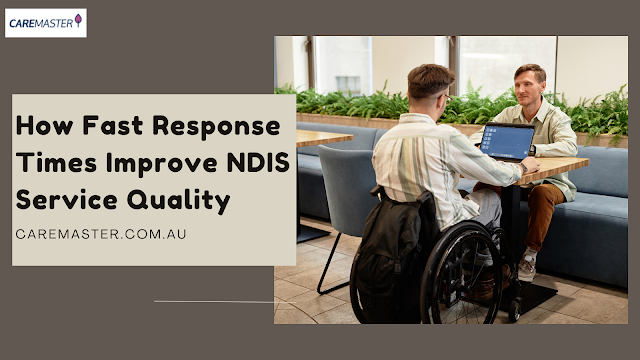How Fast Response Times Improve NDIS Service Quality
For people with disabilities and their support networks, timely communication isn’t a bonus; it’s essential. When someone reaches out for help, every minute waiting can add stress, confusion, or even disruption to their care. This is where fast response times truly shape the quality of NDIS service delivery.
Many Aussie NDIS providers now rely on rostering to keep things running smoothly, and Rostering or Support Coordination Software to keep on top of calls, messages, and plan changes. But beyond the tech, it’s the people behind the screens who make the real difference.
Why is Fast Response Essential in NDIS Services?
Everyday Life Doesn’t Wait
People with disabilities often have daily routines that rely on structure and certainty. If a service provider takes too long to respond to a change in schedule or a request for support, it can throw that whole routine out. This might mean missing a therapy appointment or being late for a community outing, which can be unsettling and even distressing.
Having the right tools, like NDIS CRM software, makes it easier to respond quickly to any changes and keep everyone in the loop. But it’s not just about having software. It has to be used well, too. When providers take the time to build strong communication habits, they’re showing that the person comes first, not the paperwork.
It is a Matter of Trust
Quick replies build trust. When a participant or family member reaches out and hears back promptly, they feel respected and cared for. They know someone is paying attention and taking their concerns seriously.
This is especially important in support coordination. A delayed response from a coordinator can slow down things like booking services, resolving issues, or organising new supports. Coordinators using support coordination software properly can stay on top of these tasks and avoid unnecessary delays.
But even the best software won’t help if the culture isn’t right. Timely communication starts with a mindset, one where people are treated as equals, and their time is valued.
Technology Always Supports
No software can replace empathy, but it can definitely help manage the workload. For example, NDIS Rostering Software can help make sure the right staff are available at the right time, avoiding last-minute cancellations or double bookings. And when everything’s more organised behind the scenes, there’s more time to respond properly to the people who need support.
NDIS software for providers has come a long way in helping manage multiple touchpoints. Emails, case notes, service agreements, and bookings can all be handled in one place. But tools only go so far. What counts most is how providers respond when someone says, “I need help.”
Quick Reply Builds Respect
Families and participants remember how they’re treated more than anything else. A quick, respectful response can make someone feel like they matter. It reduces anxiety, avoids confusion, and makes the whole process feel more human.
The best NDIS software means less rushing and more time to be present with the participant. Even a simple message like “We’ve got your request, and we’re working on it” can go a long way. It tells the person that they haven’t been forgotten.

.png)
.png)
Comments
Post a Comment